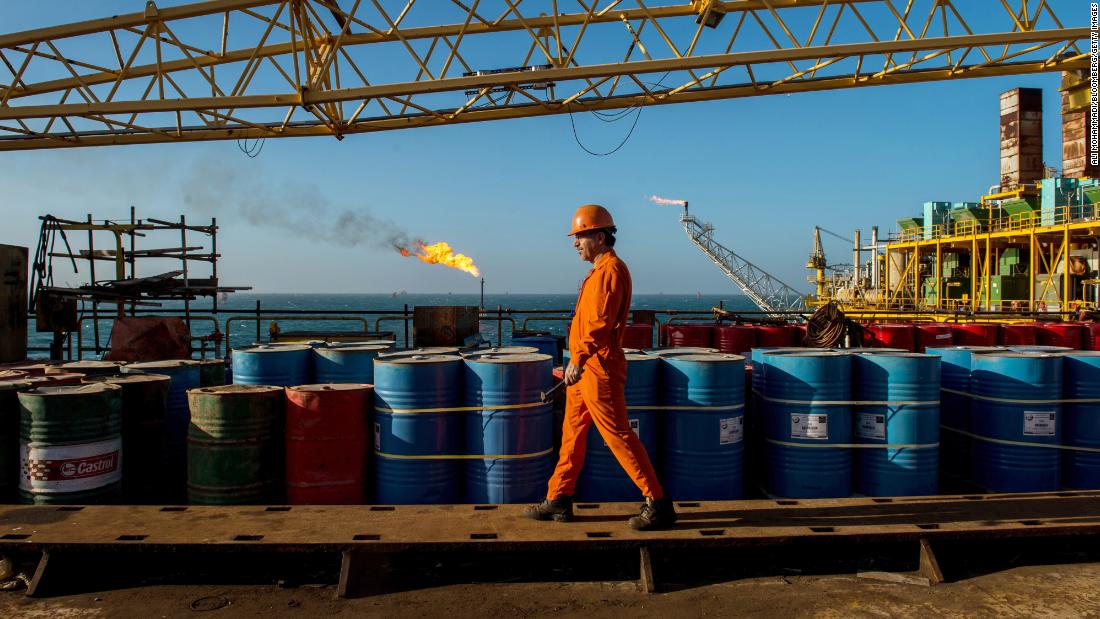
President Donald Trump declared Wednesday that the United States no longer needs to rely on the Middle East for oil.
“We are independent, and we do not need Middle East oil,” Trump said during remarks that helped send oil prices tanking because they signaled easing tensions with Iran.
There’s no doubt that America’s historic oil boom has rewritten the rules of the global energy industry, but the real story is much more complicated.
It’s true that the United States is now the world’s leading oil producer, ahead of Saudi Arabia and Russia. US oil output has doubled since 2011 to nearly 13 million barrels per day. And America is pumping so much oil that it’s now exporting 3 million barrels a day.America’s shale oil boom, which began early in the last decade, has clearly lessened our reliance on foreign oil, especially relative to the 1970s Arab oil embargo that crippled the US economy. That’s a major reason why recent supply disruptions did not have a more dramatic or lasting impact on oil prices.Yet the United States is still dependent on the Middle East — Saudi Arabia in particular.”We are not walled off. Shale is not superman,” said Helima Croft, global head of commodity strategy at RBC Capital Markets.
Outages matter, wherever they occur
Remember that oil is a globally traded commodity. That means a supply outage on the one side of the planet can push up prices in the other, such as the United States. Today, for instance, investors are on high alert for any disruptions in the Strait of Hormuz, the Middle East chokepoint where oil leaves the Persian Gulf to reach customers around the world.”The reality isthat a disruption anywhere produces a price spike everywhere, including here,” said Bob McNally, president of consulting firm Rapidan Energy Group.
Recall that crude surged 15% in September, the biggest spike in a decade, after a devastating attack briefly derailed Saudi Arabian oil production. Trump responded by promising to use oil from the Strategic Petroleum Reserve, America’s emergency stockpile of crude, to “keep the markets well-supplied.””If we didn’t need oil from the Middle East, then why on earth did the president feel compelled to reassure the world, just before markets opened, that we were ready to use the SPR?” said McNally, a former energy adviser to President George W. Bush.Saudi Arabia’s success in rapidly restoring production following the attack caused oil prices to sharply retreat. And the brief nature of outage may have altered the perception of America’s reliance on OPEC.”If Saudi Arabian oil had stayed off the market, we would have a different appreciation of our mutual dependence on the Middle East,” said Croft, a former CIA analyst who is now with RBC.
The Saudis have the firepower to respond to shortages
Second, the United States cannot immediately increase production in response to a shortage. It takes months and the pressure of higher prices for US shale producers to ramp up.”If there is an outage, shale producers cannot flip on a light switch,” said Croft.Only Saudi Arabia has the spare capacity required to rapidly respond to a shortage. That’s why Trump pleaded with Saudi Arabia in 2018 to pump more oil to replace barrels sidelined by sanctions on Iran.”If you are isolated, you don’t need to ask Saudi for barrels,” said Croft. “US net oil imports (imports minus exports) stood at just 2.9 million barrels per day in October, according to the most recent Energy Information Administration statistics. That’s down dramatically from 8.7 million a decade earlier.And the United States recently became a net exporter of crude oil and products, which includes finished motor gasoline and diesel.
Not all barrels are created equal
And the US refinery system, which was built in the last century operates most efficiently with a healthy dose of heavy oil that churns out gasoline, jet fuel and diesel.US shale oil, on the other hand, is very light. That means shale barrels from West Texas can’t easily replace ones from Iraq or Venezuela.”That is a matchup that was dictated decades ago,” McNally said.In theory, US refiners could use more light shale oil in an emergency. But that would cause US oil prices to collapse relative to world oil prices, McNally said.”You’d have to crash the price. That would put some US producers out of business,” McNally said.
That’s why the United States imports heavy oil from overseas.Most of that foreign oil comes from Canada and Mexico. However, Saudi Arabia and Iraq are the third and fourth-biggest sources of America’s foreign oil.The United States imported an average of 906,000 barrels per day from the Persian Gulf through the first 10 months of last year, compared with 1.5 million barrels in 2018.”US production has changed the game. We shouldn’t overlook that,” said Croft. “But the idea that we will not feel significant economic effects if we were to get major, prolonged outages in the Middle East is not accurate.”























